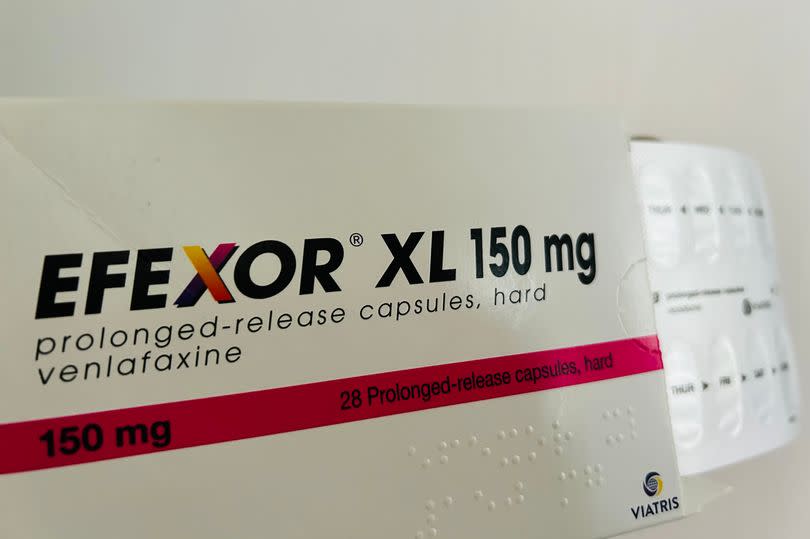I take an antidepressant classed as 'one of the worst' for withdrawal symptoms - and don't I know it

While most might welcome a new review which claims to have found that fewer people than previously thought have symptoms when they stop taking antidepressants it also uncovered a worrying finding.
The Lancet Psychiatry review, from the Universities of Berlin and Cologne, estimates that only one in every six or seven patients can expect symptoms when stopping antidepressants. However, the review also found that symptoms are more common with some antidepressants than others.
The review of various studies found that the most commonly used antidepressants in the UK - citalopram, sertraline and fluoxetine - had the lowest risk of antidepressant discontinuation symptoms. But venlafaxine, which is also used in the UK, had the second highest, and I'm not at all surprised.
READ MORE:
'My daughter used to be able to pick up her toys, then all of a sudden she couldn't'
'My son could have been killed by one bite of a burger - something needs to change'
I've been taking venlafaxine for around 12 years. Ironically, I had asked to try the drug after conducting my own research and after trying various other antidepressants, something I now wish I had never done.
Quite a few years ago I was once (wrongly) advised to suddenly stop taking venlafaxine due to another health condition. The side effects were so severe that I am now convinced that I'll never be able to come off it because even forgetting to take it for one day results in crippling symptoms.
The first time I began to realise that I was starting to feel strange, having stopped taking venlafaxine, was when I was crossing the road one day. All of a sudden a wave of vertigo came over me and I felt as if I was constantly falling to the ground.
It was so overwhelming that I had to hold onto desks even when simply walking from one end of the office to the other. My head was spinning.
I subsequently began taking venlafaxine again, having been informed that it was safe to do so and that I should never have been told to go 'cold turkey'. On that advice I assumed I would never again experience such dreadful side effects.
I was wrong.
If I ever forget to take my tablets for a single day I begin to get the most bizarre hearing sensation. It's like I can hear the blood flowing through my ears. It is truly terrifying and impossible to ignore.
Having done my own research I conclude this is pulsatile tinnitus - defined by Tinnitus UK as a rhythmical noise which is heard in the head and/or ears which pulses usually at the same rate as the heart beat.
And I'm not the only one who experiences it.
A close friend of mine is also on venlafaxine. And he experiences similar symptoms if he also ever forgets to take it for just one day.
He describes it as a "whooshing sound" in his ears. The first time he told me he has the same side effect was like a 'Eureka!' moment as I realised I wasn't the only one.
I'm no scientist, nor am I an expert in any way, but it's no mere coincidence that two of us have the same symptom when we forget to take our venlafaxine. I have informed a GP who reminded me of the need to 'not forget' to take my medication.
Coming off venlafaxine involves a doctor-monitored gradual reduction in dosage. According to a 2018 study in Psychother Psychosom the process can take 'several months'. Furthermore, there doesn't appear to be any tangible way to avoid the symptoms.
Although it's good to hear that fewer people than previously thought experience antidepressant discontinuation symptoms. But for those of us who do, the future is an uncertain world.
Despite now feeling that I don't believe I need to continue taking venlafaxine the alternative is far more preferable.
I fear that I'll never be able to come off the antidepressant and I strongly believe that prospective patients should be strongly warned of the discontinuation symptoms given the findings of the Lancet Psychiatry review.

 Yahoo News
Yahoo News 
